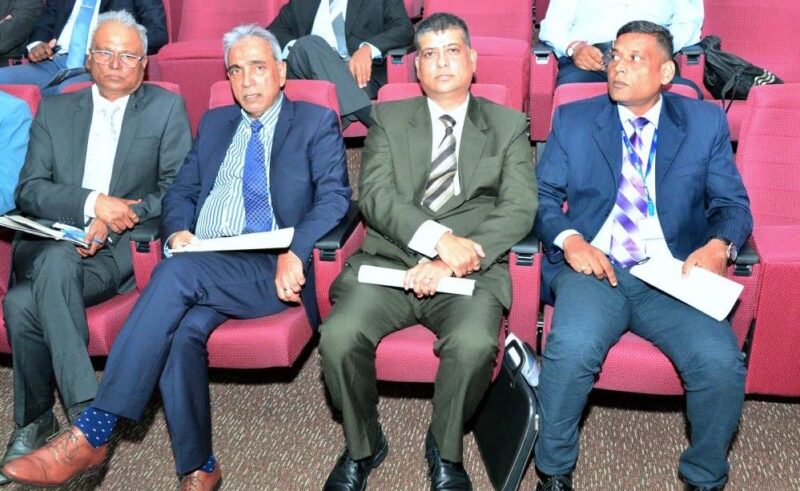
A Forum on the theme ‘Pertinence of Whistleblowing for Public Officers’, organised by the Independent Commission Against Corruption (ICAC), in the context of the commemoration of National Day 2023, kickstarted on Tuesday morning at the seat of the institution in Réduit.
The Director-General of the ICAC, Dr Navin Beekarry; the former Secretary for Public Service and current Vice-president of the Central Procurement Board, Mr Swaminathan Ragen, and other personalities were present. The main objectives of the forum are to throw light on the importance of whistleblowing; highlight the protection offered to whistleblowers; and, discuss the related challenges.
Topics being discussed include: The effective reporting of acts of corruption and protection offered; the importance of responsible reporting; and, the challenges to whistleblowing.
In his address during the launching of the Forum, Dr Beekarry spoke of the relevance and value of whistleblowing in denouncing acts that are perceived as illegal or illicit to trigger investigations. He observed that in order to build a strong and independent country, it is paramount to have the involvement of people and to strengthen existing institutions.
He dwelt on the multiplier effect of small acts of corruption in destroying the whole fabric of the country and emphasised that whistleblowing can act as a channel that will afford an opportunity for collaboration between people inside institutions to combat corruption and thus help build transparency and trust in the system.
The Director-General also announced that the ICAC is nearing the completion of the setting up of an electronic reporting system which is secured and which will enable interaction without the risk of disclosure of the identity of the person.
As for Mr Ragen, he underlined that there are compelling reasons to reinforce existing frameworks regarding whistleblowing in order to fight against corruption and malpractices, which he cautioned, if left unchecked will lead to the unstoppable decay of the society.
He spoke of the many ways whereby whistleblowing may help to uncover serious cases of fraud, malpractices and misuses of resources in the public sector.
According to Mr Ragen, there is a need to prompt legal and institutional response as well as to fill the legal void such as bringing forth other auxiliary legislations to the Whistleblowing Act, to encourage whistleblowing.
Furthermore, he highlighted that strong institutions and employees recruited under merit are the cornerstone of winning the battle against corruption. ‘We all have the moral duty to pass on the legacy of a society free of repugnant practices by acting against them’, he affirmed.